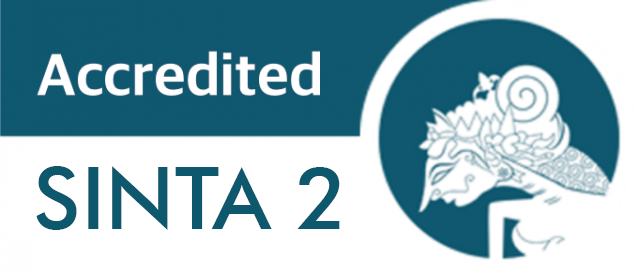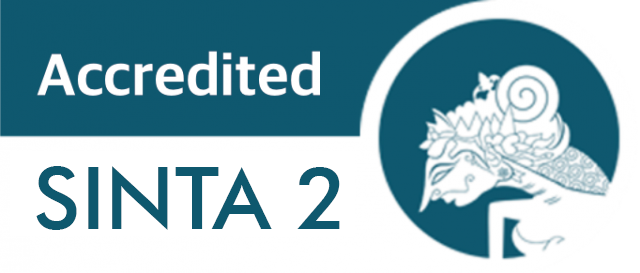Cognitive Enhancement Therapy in Schizophrenia
Downloads
Schizophrenia is a chronic, severe, and debilitate mental disorder that causing disability. Factors that causing disability is cognitive impairment. Cognitive impairment caused by disturbance in neurodevelopmental process of the brain that related to Dopaminergic, GABA-ergic, and Acethylcholinergic pathway. Cognitive Enhancement Therapy is additional therapy to recovery the cognitive function. CET facilitated repairmenin socio and non-socio cognitive function, encourage patient behaviour related social condition, develop patient understanding of schizophrenia and the impact on cognitive impair- ment, and rehabilitation program that characterised of an experiential and exercise to repair the non-social cognitive function (attention, memmory, and problem solving). CET shows improvement in early or late onset of schizophrenia. Pa- tients who got CET can back to work. Now, CET is used for early intervention in cognitive impairment in Schizophrenia. CET was also developed in patients with Schizoaffective, Schizophrenia comorbid with drug abuse, and patientswith au- tism. Hopefully, the improvement onquality of life patient with schizophrenia can achieve with combination pharmacother- apy and Cognitive Enhancement Therapy.
T. Mogami, "Cognitive remediation for schizophrenia,” Yonago Acta Med., vol. 50, no. 4, pp. 69–80, 2007.
H. Lavretsky, "History of Schizophrenia As a Psychiatric Disorder,” in Clinical Handbook of Schizophrenia, First., K. T. Mueser and D. V. Jeste, Eds. Guilford Publications, 2008, pp. 3–13.
B. J. Sadock and V. A. Sadock, Kaplan & Sadock's Synopsis of Psychiatry: Behavioral Sciences/Clinical Psychiatry, 10th editi. Lippincott Williams & Wilkins, 2007.
W. T. Carpenter, J. M. Kane, R. A. Lasser, S. R. Marder, and D. R. Weinberger, "Remission in Schizophrenia : Proposed Criteria and Rationale for Consensus,” Am. J. Psychiatry, vol. 162, no. 3, pp. 441–449, 2005.
R. S. E. Keefe and P. D. Harvey, "Cognitive Impairment in Schizophrenia,” in Novel Antischizophrenia Treatments, First., M. A. Geyer and G. Gross, Eds. USA: Springer Berlin Heidelberg, 2012, pp. 11–38.
Y. B. Noor and M. S. Mahajuddin, "Efek Terapi Remediasi Kognitif Terhadap Perbaikan Fungsi Kognitif Pasien Skizofrenia dengan Terapi Standar Rawat Jalan di RSJ Menur Surabaya,” Universitas Airlangga, 2015.
B. T. Talreja, S. Shah, and L. Kataria, "Cognitive Function in Schizophrenia and Its Association with Socia-demographics factors,” Ind. Psychiatry J., vol. 22, no. 1, pp. 47–53, 2013.
G. Oaks, S. R. Marder, R. J. Hu, and G. Alva, "Cognitive Impairment in Schizophrenia : Understanding Prevalence , Magnitude , and Scope,” in Current Psychiatry, 2014, pp. 1–8.
W. F. Maramis and A. A. Maramis, Catatan ilmu kedokteran jiwa, 2nd ed. Surabaya: Airlangga University Press, 2009.
S. M. Eack et al., "Cognitive enhancement therapy for early-course schizophrenia: Effects of a two-year randomized controlled trial,” Psychiatr. Serv., vol. 60, no. 11, pp. 1468–1476, 2009.
M. of H. R. of Indonesia, "Riset Kesehatan Dasar (National Health Survey),” Minist. Heal. Repub. Indones., no. 1, pp. 1–303, 2013.
S. Grover and N. Malhotra, "Depression in elderly : A review of Indian research,” J. Geriatr. Ment. Heal., vol. 2, no. 1, pp. 4–15, 2015.
S. M. Eack et al., "Cognitive Enhancement Therapy in substance misusing schizophrenia : Results of an 18-month feasibility trial,” Schizophr. Res., vol. 161, no. 2–3, pp. 478–483, 2015.
S. M. Eack, D. P. Greenwald, S. S. Hogarty, and M. S. Keshavan, "One-year durability of the effects of cognitive enhancement therapy on functional outcome in early schizophrenia,” Schizophr. Res., vol. 120, no. 1–3, pp. 210–216, 2010.
K. E. Lewandowski, S. M. Eack, S. S. Hogarty, D. P. Greenwald, and M. S. Keshavan, "Is cognitive enhancement therapy equally effective for patients with schizophrenia and schizoaffective disorder?,” Schizophr. Res., vol. 125, no. 2–3, pp. 291–294, 2011.
S. M. Eack, R. I. Mesholam-gately, D. P. Greenwald, S. S. Hogarty, and M. S. Keshavan, "Negative symptom improvement during cognitive rehabilitation : Results from a 2-year trial of Cognitive Enhancement Therapy,” Psychiatry Res., vol. 209, no. 1, pp. 21–26, 2013.
T. Wykes and C. Reeder, Cognitive Remediation Therapy for Schizophrenia, First. New York, USA: Routledge, 2005.
C. Pantelis, C. Wannan, C. F. Bartholomeusz, K. Allott, and P. D. Mcgorry, "Cognitive intervention in early psychosis ” preserving abilities versus remediating deficits,” Curr. Opin. Behav. Sci., vol. 4, pp. 63–72, 2015.
G. E. Hogarty et al., "Cognitive enhancement therapy for schizophrenia,” Lancet, vol. 364, no. 9452, pp. 2163–2165, 2004.
V. Roder, L. Hulka, and A. Medalia, "Combined Treatment Approaches : Overview and Empirical Results,” in Neurocognition and Social Cognition in Schizophrenia Patients. Basic Concepts and Treatment, vol. 177, V. Roder and A. Medalia, Eds. Karger, 2010, pp. 85–103.
G. E. Hogarty and S. Flesher, "Practice principles of cognitive enhancement therapy for schizophrenia,” Schizophr. Bull., vol. 25, no. 4, pp. 693–708, 1999.
Copyright (c) 2020 Zain Budi Syulthoni, I Gusti Ngurah Gunadi

This work is licensed under a Creative Commons Attribution-ShareAlike 4.0 International License.
1. Copyright of this journal is possession of the Author, by the knowledge of the Editorial Board and Journal Manager, while the moral right of the publication belongs to the author.
2. The journal allows the author(s) to retain publishing rights without restrictions.
3. The articles are published under a Creative Commons Attribution Share-Alike (CC BY-SA) license. Many research funding bodies prefer the CC BY-SA license because it allows for maximum dissemination and re-use of open access materials. Users are free to share (copy, distribute, and transmit) and remix (adapt) the contribution under this license, including for commercial purposes, as long as they attribute the contribution in the manner specified by the author or licensor.




























